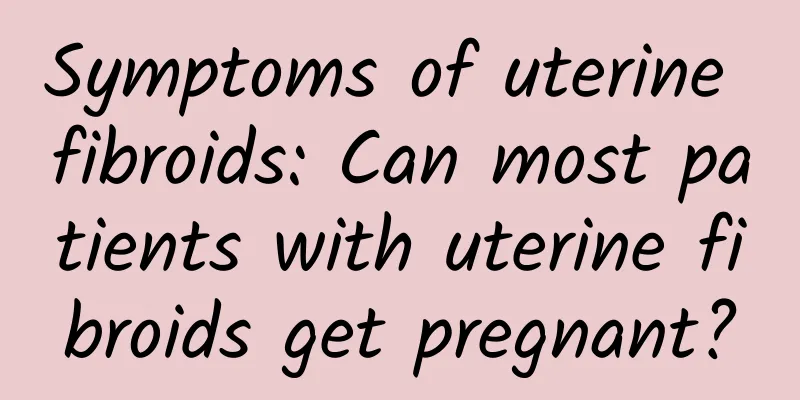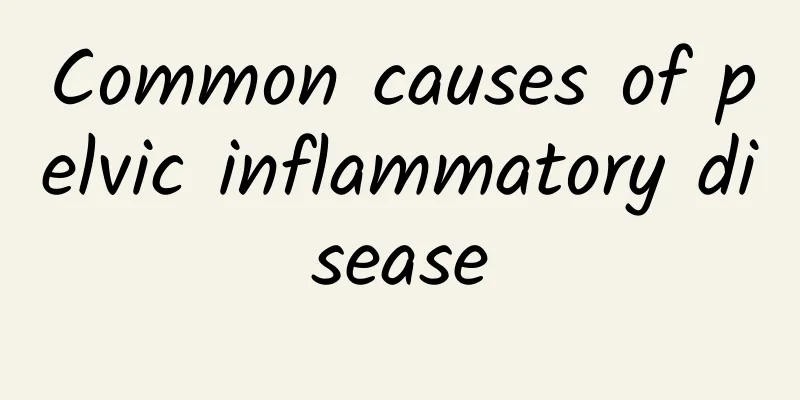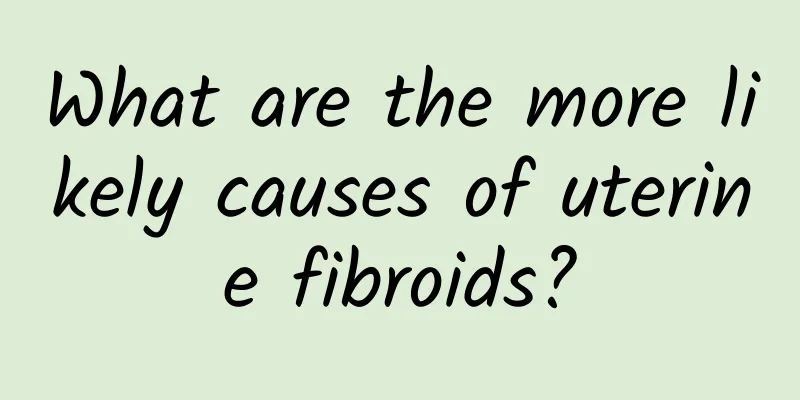Symptoms of uterine fibroids: Can most patients with uterine fibroids get pregnant?

|
Uterine fibroids are one of the most common benign tumors in the female reproductive organs and one of the most common tumors in the human body. They are also called fibroids and uterine fibroids. Because uterine fibroids are mainly composed of the proliferation of uterine smooth muscle cells and a small amount of fibrous connective tissue exists as supporting tissue, they are more accurately called uterine leiomyoma. Uterine fibroids. What are the symptoms of uterine fibroids? 1. Infertility and miscarriage: Most patients with uterine fibroids can get pregnant until full term. However, some women of childbearing age are infertile and cannot find other reasons except fibroids. They can get pregnant after myomectomy, indicating that infertility has a certain relationship with fibroids. The location, size and number of fibroids may impair pregnancy and pregnancy outcomes. 2. Compressive diseases: Uterine fibroids can cause compressive diseases of surrounding organs. People with uterine anterior wall fibroids close to the bladder will develop bladder irritation diseases such as frequent urination and urgency; when cervical fibroids grow forward to a considerable size, they can also cause bladder compression, inducing upper pubic discomfort, frequent urination, urinary retention or overflow incontinence. 3. Vaginal discharge: Uterine submucosal fibroids and cervical submucosal fibroids can induce increased leucorrhea. As long as the tumor is infected, there will be a large amount of purulent leucorrhea. If there is ulceration, necrosis, or bleeding, there will be bloody or purulent vaginal discharge with a foul odor. 4. Uterine bleeding: Clinical phenomena include menorrhagia, cyclical bleeding, increased menstrual volume, prolonged menstruation, frequent menstruation, shortened menstrual cycle, increased menstrual volume; irregular bleeding, loss of normal menstrual cycle, long duration, dripping, and submucosal fibroids are common. Uterine bleeding is common in submucosal fibroids and intermuscular fibroids, and subserosal fibroids rarely cause uterine bleeding. 5. Pain: Uterine fibroids usually do not cause pain. If pain is found, it is mainly caused by the pathological changes of the fibroids themselves and the combination of other pelvic diseases. |
<<: Symptoms of uterine fibroids. Will uterine fibroids cause abnormal leucorrhea?
>>: What are the symptoms of uterine fibroids? How to prevent and treat uterine fibroids?
Recommend
What is the basis for charging for ovarian cyst surgery?
Before choosing the right ovarian cyst surgery, w...
Is it possible to cure adenomyosis?
Some diseases can be cured, but many cannot. Aden...
What are the early symptoms of ectopic pregnancy?
What are the early symptoms of ectopic pregnancy?...
Misunderstandings in the Treatment of Hyperprolactinemia
Hyperprolactinemia is a type of female disease th...
Is irregular menstruation hereditary?
Is irregular menstruation hereditary? The appeara...
Common dietary treatment measures for patients with pelvic inflammatory disease
If pelvic inflammatory disease is not treated in ...
Don’t touch these three fattening breakfasts! Avoid eating too much and gaining weight
"Breakfast is an important source of calorie...
What is the cause of pelvic inflammatory disease?
Nowadays, there are many types of gynecological d...
What can't you eat after an abortion? How long can you not eat before an abortion?
Abortion is a common gynecological procedure that...
What foods should not be eaten to prevent threatened abortion
There are many women who have threatened miscarri...
What is the cause of female cervical erosion? How is female cervical erosion caused?
Cervical erosion is a gynecological disease that ...
Will the uterine fluid be absorbed automatically?
Uterine effusion can be divided into physiologica...
What are the causes of postpartum cervical erosion?
What are the causes of postpartum cervical erosio...
Clinical manifestations of chronic cervicitis
Cervicitis can generally be divided into many typ...
Several common methods of artificial abortion
It is understood that there are still many female...









